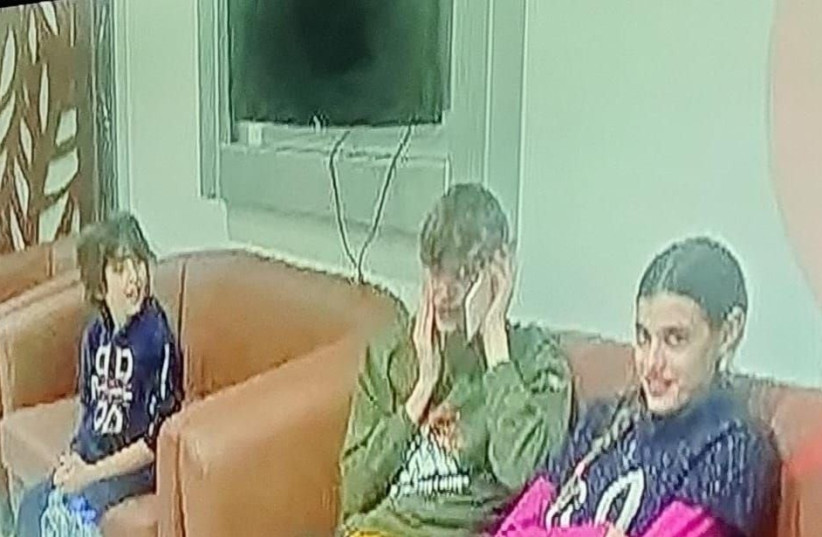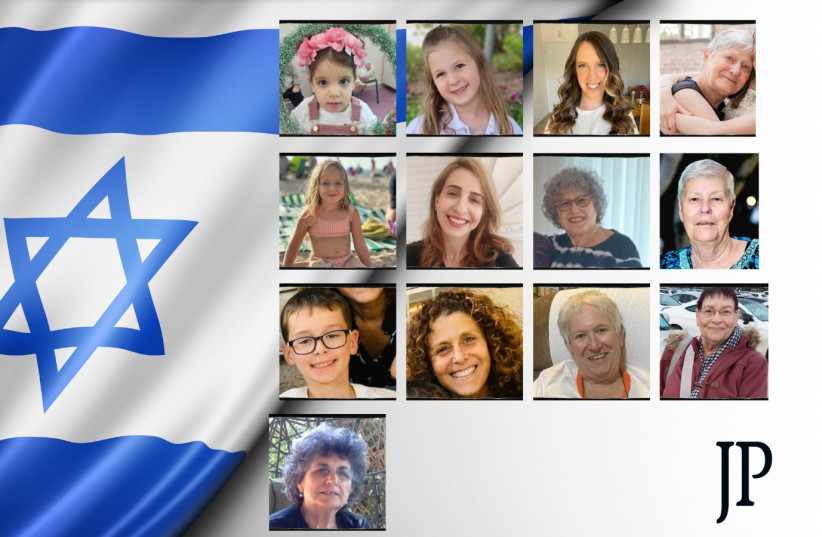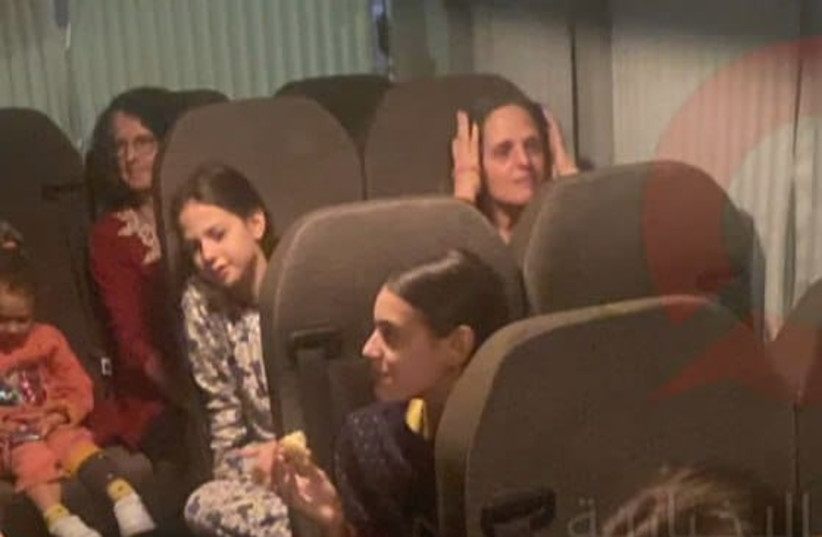Hamas released 13 Israeli and four foreign citizens it had held captive in Gaza after a seven hour delay, ending a nail-biting night in which it was unclear if the second phase of the hostage deal would come fruition.
The hostages were handed to the Red Cross at the Egyptian crossing into Gaza at Rafah, from where they were transferred to Israel.
The captives, which were seized from Kibbutz Be’eri during the October 7 attack, were sent to medical centers in Israel where they reunited with their family members.

"We can't find the words to describe our emotions after 50 challenging and complicated days," said the family of Emily Hand, whose ninth birthday passed while she was in Hamas captivity. "We are overjoyed to embrace Emily again, but at the same time, we remember Raya Rotem and all the hostages who have yet to return."
For residents of the Hands' home kibbutz of Be'eri, one of the communities worst hit by last month's attack by Hamas, the release of some of the hostages abducted on October 7 brought a measure of relief tinged with sadness.
Comes after night of delays, uncertainty
The release came after hours of delays and uncertainty. Close to 9 p.m. on Saturday, Hamas stated that “the Islamic Resistance Movement Hamas responded to the estimated Egyptian Qatari efforts that moved throughout the day to ensure the continuation of the temporary armistice agreement after transferring them the commitment of the occupation to all the conditions stipulated in the agreement.”
It had earlier argued that not enough humanitarian aid had entered Gaza through the Egyptian crossing at Rafah and that Israel had not freed agreed-upon Palestinian prisoners based on seniority.
Qatari, Egyptian and Israeli officials had worked to save the deal.
Immense pressure from behind the scenes on Hamas came from Qatar, urging them to adhere to the planned ceasefire, according to N12. The Qatari Foreign Ministry confirmed that 39 Palestinians will be released in exchange for the release of 13 hostages, they also confirmed that 7 foreign nationals would be released as well.
Prime Minister Netanyahu also held a situation assessment with top security officials to make sure that the second phase of the deal would proceed as expected, his office stated.
The delay had come as Israel prepared to receive some 13 hostages, whose families had already been notified. Some seven foreigners are also expected to be freed on Saturday night.
Al Jazeera had already announced that the hostage deal was underway, when it became clear that no such step was taking place.
MK Yuli Edelstein tweeted on the situation, saying: "There is a fundamental Arabic value, translated to 'patience is the key to victory.' They have patience, but so do we."
He continued "They will try to stretch the rope, but we will decide when it is time to tear the rope. They will try to play with us and we will respond at the right time and in the right way for us. Carefully, resolutely. Every step is calculated forward until everyone is here. Until victory."
Families of Israeli hostages were notified to start heading to medical facilities across Israel as they await the arrival of their loved ones, all women and children from Kibbutz Be'eri.

First phase of the deal was executed successfully Friday
The first phase of the deal, which would see 50 captives freed in four days in exchange for a pause in the war and the release of 150 jailed Palestinian women and minors, was successfully executed on Friday.
Thirteen Israeli captives were freed and 39 Palestinian prisoners were freed. Hostilities had ceased on Friday already at 10 a.m. and an increased number trucks with humanitarian aid moved into Gaza.
The mechanisms of the deal allowed for it to be extended for another five days, by which 10 hostages would be freed every 24 hours.
In an unusual move, a delegation of Qatari officials landed in Israel on Saturday to discuss extending deal, according to KAN news.
The delay had sparked speculation that the deal was off and the war would be resumed. But as of 9 p.m., it appeared that the crisis had been resolved.

Hostages taken to hospitals in Israel, reunited with families
The Israeli hostages were taken to the medical centers at Wolfson and Schneider where they were reunited with their families.
Mia Regev was sent to Soroka Hospital in Beersheba. Regev, who was taken hostage during the Nova Festival, is in need of immediate medical treatment, but her condition is not life-threatening.
"This is the saddest joy and the happiest sadness, but our family is home," said Inbal Tzach, whose cousin Adi Shoham was visiting Be'eri, along with her children Nave, 8 and Yahel, 3 when the family was abducted.
However, with Adi's husband, Tal, still in Gaza, she said there remained a long way to go. "This is an emotional evening for the families who received their loved ones tonight. We will continue the struggle until everyone comes home."
The initial release on Friday had given Israelis a ray of hope that all the more than 239 hostages Hamas had seized when it infiltrated southern Israel on October 7 would be freed.
On Friday Netanyahu said, “I emphasize to you - the families, and to you - the citizens of Israel: we are committed to the return of all our hostages. This is one of the goals of the war and we are committed to achieving all the goals of the war.”
That attack, in which Hamas had killed over 1,200 people sparked the IDF’s military campaign in Gaza to oust Hamas. According to the terror group close to 15,000 Palestinians have been killed in Gaza war-related violence.
The hostage deal has provided the first significant pause in the war since the October 7 attack.
Reuters, Jerusalem Post Staff, and Zvika Klein contributed to this report.
